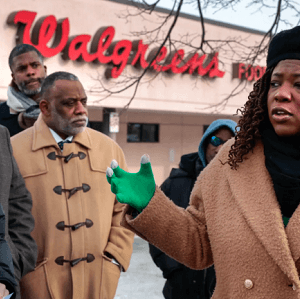Walgreens’ plan to close a “significant portion” of its 8,600 stores could exacerbate pharmacy shortages in underprivileged communities, potentially worsening health disparities for poor patients and communities of color. The retail giant’s retrenchment from primary care, including scaling back its stake in VillageMD and closing clinics nationwide, has sparked concerns about access to healthcare in low-income neighborhoods.
During a recent earnings call, Walgreens CEO Tim Wentworth acknowledged the company is often “the last one standing” in many areas. The closures, which follow previous rounds of store shutdowns, have prompted protests and inquiries from Massachusetts lawmakers concerned about the impact on vulnerable populations.
Sean Slovenski, a former Walmart Health executive, criticized retailers for giving communities hope with primary care expansion only to “rip it out from under them.” However, Peter Bonis of Wolters Kluwer Health suggests the impact may be limited due to the relatively small footprint of retail primary care.
Walgreens has not specified which stores will close or provided a timeline, but Wentworth stated the company aims to work with state Medicaid programs and local law enforcement to maintain care access. The company plans to shift towards “capital-light services” and partnerships across the healthcare industry, according to U.S. healthcare president Mary Langowski.
The closures could have significant implications for health equity, as poor patients are already less likely to refill prescriptions. As retailers pull back from their brief foray into primary care delivery, concerns mount about the potential widening of health disparities in communities already struggling with access to care.
See “Walgreens’ rollback could grow pharmacy deserts” (July 1, 2024)
